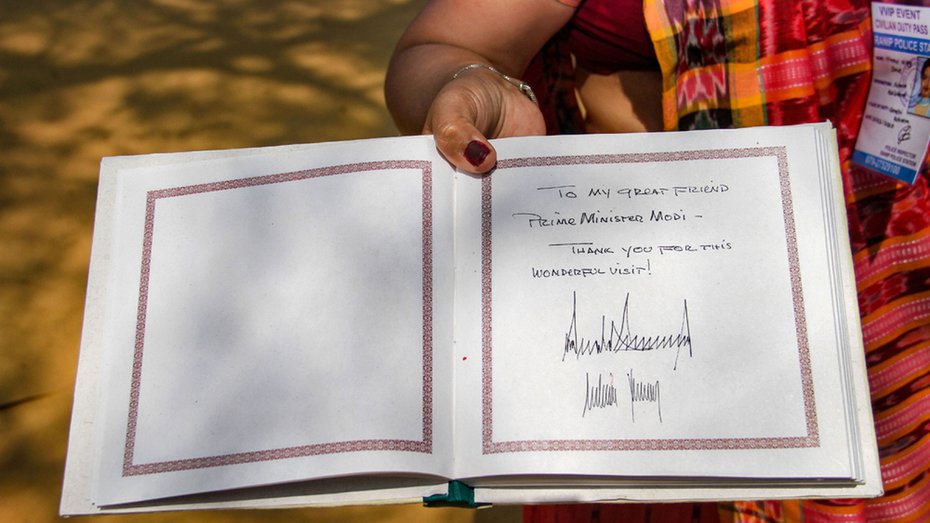Sir — After the president of the United States of America, Donald Trump, visited India, his signature was analysed by an Indian graphologist. What seemed like jagged, illegible writing was said to reveal Trump’s “shrewd, analytical” attitude. Not everyone who has seen Trump taking political decisions would agree with the analysis, but others have argued that Trump could perhaps not have become the most powerful man in the world if he did not have a shrewd mind. However, what his signature means is irrelevant to our country. India should be focusing on making actual scientific dvancements of its own so that citizens can feel proud in front of the world.
Arnab Sanyal,
Calcutta
Make it right
Sir — The Central government has been resolute in defending the Citizenship (Amendment) Act in the face of national and international criticism. However, it has clearly failed to convince not only a large section of the country’s population but also the international community. The United Nations high commissioner for human rights, Michelle Bachelet Jeria, has moved the Supreme Court to be allowed to intervene as a friend of the court on this matter (“UN agency moves SC on CAA”, March 4). She has pointed out that the law is in conflict with India’s international obligations to not discriminate between migrants or render anyone stateless on the basis of religion. Some of the concerns, presented in her intervention application — she mentions that India is a signatory to UN conventions like those on civil and political rights, elimination of racial discrimination, rights of the child, and that the CAA might contradict their terms — are similar to the arguments of the protesters against the law.
In its response, the Indian government has argued that the CAA is the country’s internal matter and concerns the sovereign right of Parliament to make laws. Further, it said that the CAA is legally valid and complies with constitutional values. It is true that the Supreme Court can decide whether it wants the UN high commissioner to be a party in legal affairs.
But India must not overlook the fact that many foreign nations are not satisfied with India’s explanations, and have expressed concern over the implications of the new citizenship law. The government should analyse and reassess the legislation.
Venu G.S.,
Kollam, Kerala
Sir — The government’s quick dismissal of the appeal of the UN high commissioner for human rights to the apex court seeking the right to intervene as an amicus curiae — the Centre said that the agency has no locus standi on the matter — appears to be myopic. It is the job of the rights body to try to prevent any possible violation of human rights anywhere in the world. This is particularly relevant for India because it is a signatory to several international conventions related to human rights. The high commissioner has kept in mind the sovereignty of India and has approached the country’s apex court rather than trying to intervene directly.
A person accused of domestic violence cannot contend that the alleged instances of violence are his ‘private affair’ and that nobody has any right to interfere. The government should stress on and prove the righteousness of the citizenship law instead of questioning the authority of an agency of international repute. In the age of technology and the ubiquity of the internet, information about any serious matter occurring at any place can be accessed with the touch of a finger once it hits the news. The CAA
has garnered international attention because of the protests it generated in Delhi and several other parts of the country, resulting in the loss of lives and property. In fact, it has landed the entire country in turmoil. In such a situation, could it be expected that the UN body meant to protect human rights would remain a silent spectator?
Sanjit Ghatak,
South 24 Parganas
Sir — It is a shame that the Centre’s poor decisions — this time it is the CAA — has drawn international attention. If the government truly thinks that it can handle its internal matters on its own, then the top leaders of the country should have tried harder to mitigate the situation. Not only did they let the confusion over the CAA fester, but they also watched quietly as riots took over the national capital. This lack of just governance is unacceptable in a democratic country.
Arghya Roy,
Calcutta











